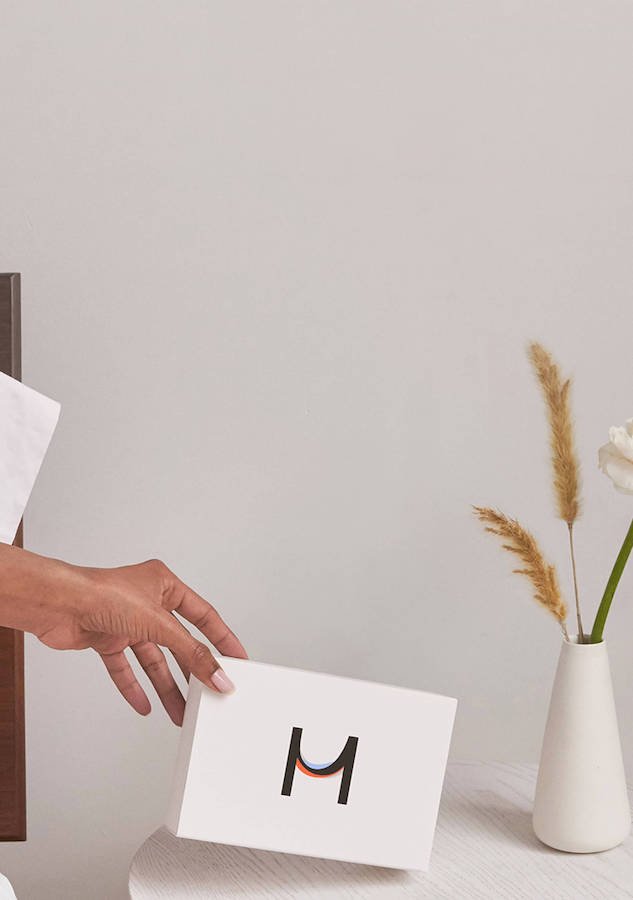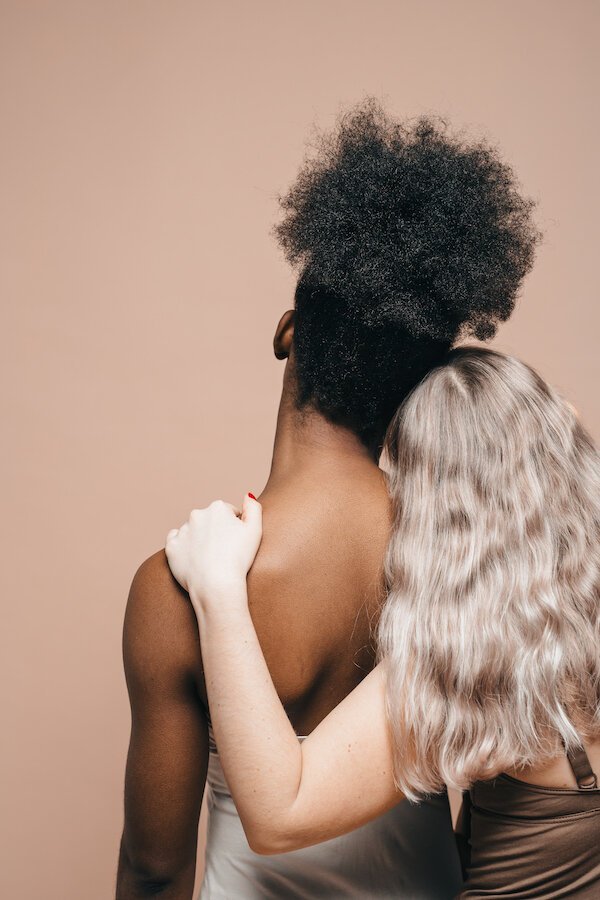
Our Readers Share Their Postpartum Stories
What Is It Like To Become A Parent?
Becoming a parent can be a wonderful yet challenging transition, and sometimes the postpartum months can feel especially difficult. The truth is, parenting is unique to each individual—it can take weeks, months, and even years to feel fully adjusted.
“It can take weeks, months, and even years to feel fully adjusted.”
We want to honor our readers who are parents by offering a safe space to share some of their postpartum stories. Our hope is that these stories may help other parents to feel less alone, and like they are seen and understood in their experiences. And for those of us without littles, perhaps we can learn from these stories as well—and then better support and love the new parents in our lives.
A gentle content note: Some of these stories talk about depression. It’s okay if you need to skip this piece as a way to take care of yourself, especially if you’ve experienced loss. And for resources and expert advice for supporting a loved one with postpartum anxiety or depression, we recommend starting here. 💛
“Postpartum is real.” –AM
“And it can change you as a person. Just remember, you are still who YOU are; you are just evolving into something more beautiful. It’s okay if you are dreading going back to work. It’s okay if you are ecstatic about going back to work. It’s all okay; everyone is different.”
“I needed meals, not gifts.” –ES
“I wish I knew that the importance of setting up a meal train (when everyone offered support) was emphasized to me that it would help me feel loved and not alone as well as nourished and free to enjoy recovery better—not just a clever gift option. I wish I literally created a schedule of friends or services coming in and out of the house for months into postpartum caring for things, and that would be more essential than any physical object I received in our baby shower.
“I wish I knew how essential it was to create a support system that was in place when I couldn’t ask for it.”
Receiving physical items that I didn’t prepare for was always really stressful…I felt at the time that things would stay in a pile rather than be used—which felt like a huge to-do list I could never get to. I felt really sad that once the baby got here, the help and offers mainly dissipated and it was when I needed that energy so much.
I wish I knew how essential it was to create a support system that was in place when I couldn’t ask for it (I wish I knew it would be SO hard to ask for it!). My husband had to get back to work sooner than we anticipated and I was alone for a lot of the early baby time. I spent a lot of that time feeling terribly anxious in this new absolute protector of this tiny life role. Even with my husband’s help—the relentlessness of my thoughts and body turning into a mother was life-changing and too fast. Also that some babies don’t let anyone else hold them! 🤦♀️”
“It’s fine to acknowledge that it’s hard and just take it day by day.” –DEF
“During COVID, we had a lot of friends and family offer to watch our toddler while we adjusted to the baby. Which was so sweet and well-meaning, but continually turning down that help eventually got awkward and frustrating.
This past year was a difficult one to be pregnant and have a baby. The best thing you can do for your loved ones who just had a baby is to take the pandemic seriously. This is a terrifying time to be a parent—do your part in keeping pregnant people and our little ones safe and healthy.”
“That first month is tougher than anyone tells you.” –EES
“Asking moms to be back at work at six weeks is not a good plan for anyone. I was not my best at work cause I was exhausted and I felt constantly defeated because I was trying my best and just could not keep up.
Fed is best. I cried the first time I couldn’t pump enough and my son got formula, but he is happy and healthy and a great eater to this day. Formula doesn’t negate any of the benefits of breastmilk.”
“Maternity leave is **not** a vacation.” –RBN
“We will not come back ‘refreshed’ or ‘ready.’ The first months with a newborn are the most beautiful but the most challenging times, mentally and physically, and work culture and deadlines will not be a priority.
Until there is equal treatment of parents in the workplace, and free or low-cost childcare for children under one, we will not have fair and equal representation for women in the workplace. Until parents who commit to full-time childcare at home are given respect, dignity, and compensation, we will not have fair and equal representation for women in any setting.”
“[I didn’t know] how alien my body would feel.” –A
“Do what works for you and don’t let yourself be shamed about your choices.
See a health care professional if you struggle in any way—mentally or physically. I had psychotherapy a year postpartum because I felt like I had lost my identity. I also needed physiotherapy for back and knee pain that lingered for a long time after giving birth. I am now a much healthier person inside and out and a better mother because of it.”
“I needed to process my birth story.” –DS
“I was desperate to tell my birth story over and over and over again. I needed to process it, and I needed help remembering it, and it felt so unreal and important at the same time. I think people don’t ask to hear it because it’s personal and involves a lot of bodily fluids, and maybe sometimes new moms clean up the story for other people, but it is such a beautiful mess! I still long to tell my birth story. I could tell it every day. And the fact that other people have moved on hurts.”
“I didn’t anticipate how difficult it would be to figure out a suitable pumping situation prior to returning to work!” –KN
“[And I wish I would have known] how common it is to struggle with breastfeeding, how difficult the first night in the hospital would be (especially during a pandemic), how impossible it becomes to juggle basic household tasks and maintain personal hygiene! How guilty I’d feel, how much shame I’d feel. And most of all, how intense the hormonal shift would be.
It’s far from over, and that scares me. I’m eleven weeks in and still feel so inadequate at times. Wish I knew more about PPD in advance, but I also wonder how much I was information I was exposed to but couldn’t grasp without being in the thick of it.
What ended up helping me the most was support from friends who are fellow moms and were able to simply validate and offer their ear.”
“All the comments ‘You’re doing great! You’ve got this,’ just shot straight through me.”
–AP
“Not only do they feel hollow and canned, but also made me feel guilty, knowing and recalling all the times that I was alone with baby, not knowing what to do.
Going through this myself (and being out on the other side long enough to look back at how depressed and empty I actually was…didn’t realize AT ALL at the time) I’ve now started to take notes, reflecting on exactly what I would’ve wanted and needed (and accepted) in the way of help. No better way to figure out the best way to be helpful and supportive than to go through it yourself.”
“It wasn’t joy and love at first sight for me.” –RD
“I wish others checked in more to see how I was, not so much how my baby was or how I was enjoying being a mom. I needed someone to ask about me—because, if I’m honest, it wasn’t instant joy and love at first sight for me. I think many of us feel shame because we see so many messages that say, ‘When you become a mom, it’s instant love and you love every minute.’ The reality isn’t always talked about.
Also, when I had postpartum depression, it was hard to make myself go out or do things, let alone plan something. It would have been helpful to have someone take the thinking out of planning—something as simple as a walk with me or a small outing or even just coming over.”
“I wish my husband had set up his own support.” –DS
“My husband is a saint—I love him, he’s an amazing dad. But I just couldn’t help him emotionally. He needed me and I couldn’t do it. I wish he had set up his own support system with friends before the baby was born.”
“I relied heavily on medical and mental health professionals.” –NB
“Anyone who has taken a birthing class knows the push for educating women and partners on advocating for themselves during delivery. I took those same lessons to heart in preparing for what I thought would be an inevitable season of postpartum depression. I talked to my doctor early about my concerns. Because I raised the red flag early they talked to me about my mental health at every single prenatal check-up.
“I was using my voice to say what I wanted and needed.”
At one of my prenatal appointments, I asked what my options were for antidepressants. I knew how long it took me to seek out help for my depression in the past and I was adamant about not letting that happen again. I told my doctor that if I felt like I needed medication I wasn’t going to wait it out not even for a few weeks to see if my mood resolved. I wanted to have a plan now. I was calling the shots, I was going to get help when I needed it, I was using my voice to say what I wanted and needed.
I also picked a new therapist. I did some research on local therapists who had experience with postpartum depression. I interviewed three and picked the one who seemed the most competent and compassionate. Looking back this may have been the best thing I did. I met with her (via zoom) about three times before the baby came and now I speak with her weekly. Being a new mom can be isolating, especially with covid, so I think those check in’s are really helpful.”
Do you have a postpartum story you’d like to share? We’d love to hear it in the comments below. 💛
Kayti Christian (she/her) is a Senior Editor at The Good Trade. She has a Master’s in Nonfiction Writing from the University of London and is the creator of Feelings Not Aside, a newsletter for sensitive people.





